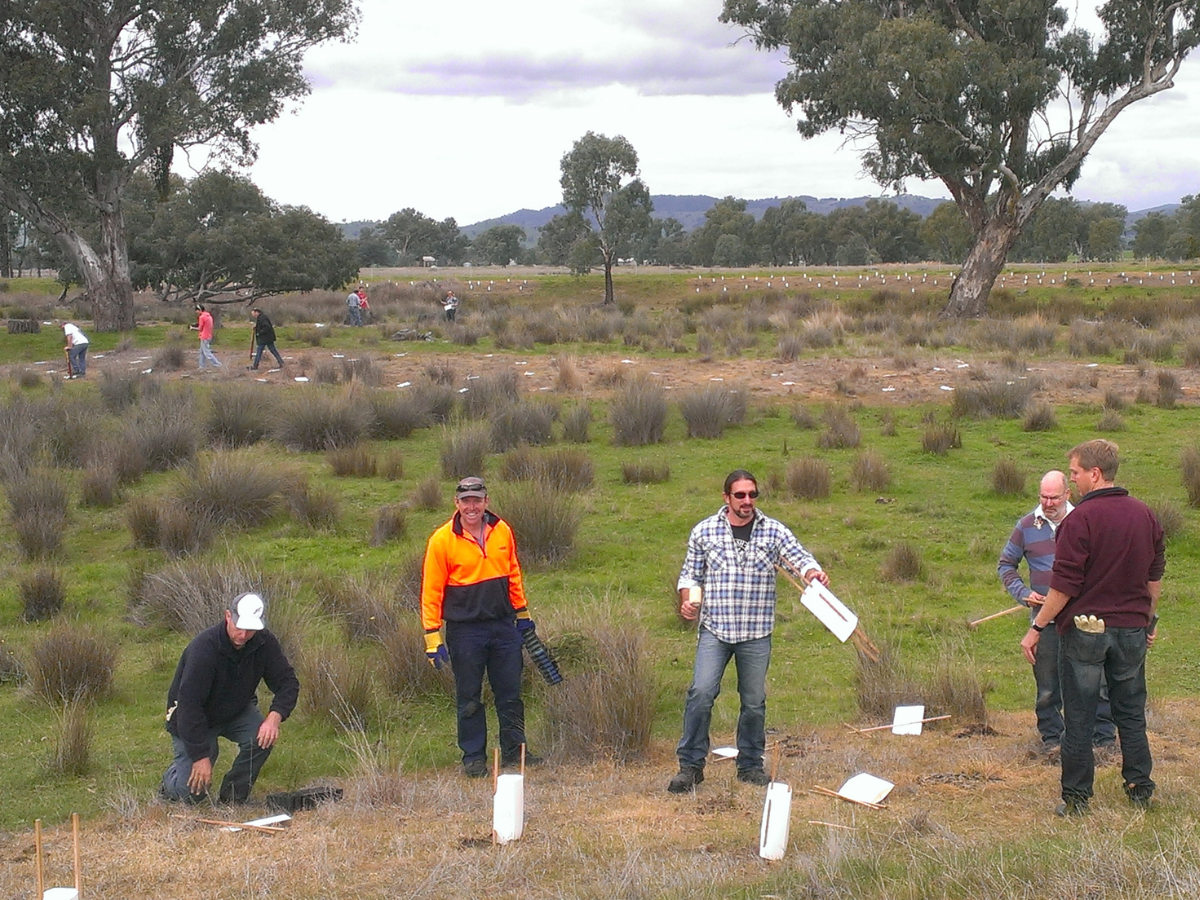Foundation for Rural & Regional Renewal (FRRR)
The wetlands leading to the Kiewa and Murray Rivers will soon be healthier, thanks to Parklands Albury Wodonga’s ‘Restoring Bonegilla’s blue carbon sink wetlands and waterways’ project.

The restoration of wetland plants in floodplain channels and wetlands on these floodplains will capture carbon, slow water runoff and clean the water before it enters major waterways. This will improve water quality, while the restoration of these wetlands will close gaps in current native vegetation corridors, enabling native animals to travel and thereby adapt to the changing climate. The vegetation will also take up atmospheric carbon dioxide, storing it in biomass and sediments.
The project is aligned to decarbonisation and climate adaptation, with strong evidence of community-led development and strong engagement with local Indigenous Elders, disability services and volunteers at the Native Garden Nursery that the group operates.
Since 1997, with the support of more than 3,000 people each year, PAW has been restoring lands degraded by grazing and, more recently a housing development, improving and maintaining the network of bush parks connecting urban and rural communities in the border regions.
A volunteer Committee of Management works closely with the ranger staff to plan and implement rehabilitation, restoration and enhancement of bushlands and parkways for environmental management and recreation.
Volunteers at the nursery have been propagating suitable wetland species from hotter, drier places, which will mean biodiversity resilience as they are planting for a future hotter, drier climate. This well-planned adaptation and restoration project, which received a $16,060 a Community Led Climate Solutions grant, will deliver decarbonisation outcomes and engage the community in planting and developing skills and knowledge for climate solutions activity.

